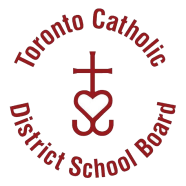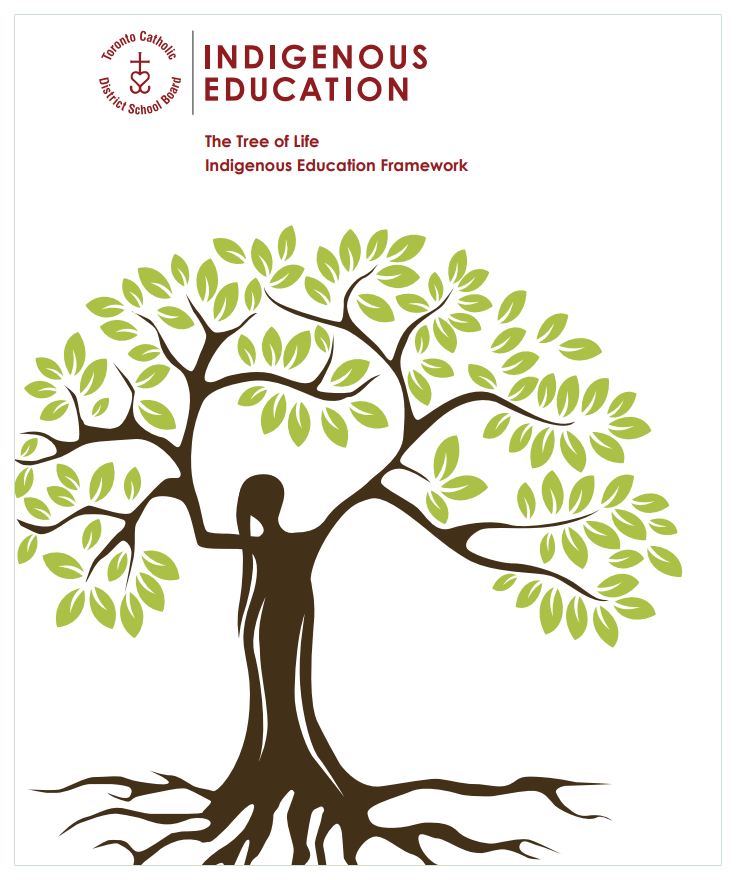Head of Indigenous Affairs
Email: andre.obonsawin@tcdsb.org

Indigenous Education
Indigenous Education at TCDSB
Indigenous Education is about honoring the wisdom of First Nations, Inuit, and Métis peoples and learning from Indigenous ways of knowing, being, and doing. It invites us to see the world through Two-Eyed Seeing, or Etuaptmumk, a guiding principle developed by Mi'kmaw Elder Albert Marshall, learning from both Indigenous and Western knowledge systems.
For the Toronto Catholic District School Board (TCDSB), this means creating spaces where Indigenous students see themselves reflected and celebrated, where all students learn authentic Indigenous histories, and where our community actively walks the path of reconciliation together. We nurture every learner, helping them grow strong in their identities while building bridges of understanding and respect.
Walking the Path of Truth and Reconciliation
We are committed to the journey of reconciliation, guided by the Truth and Reconciliation Commission's Calls to Action. This means more than acknowledging the past, it requires us to actively create a better future through how we teach, learn, and build relationships.
We're working to remove barriers for Indigenous educators, create culturally safe spaces for Indigenous learners, and build meaningful partnerships with Indigenous communities. Our commitment includes educating all staff and students about Indigenous history and the legacy of residential schools, while fostering intercultural understanding and respect.
The Tree of Life Indigenous Education Framework
Our approach to Indigenous Education is rooted in the sacred teaching of the Tree of Life, shared with us by Elders from our Indigenous Education Council. This teaching reminds us of our connection to all of Creation and guides our framework built on the Four R's of Indigenous Education: Respect, Relevance, Reciprocity, and Responsibility.
As a Catholic school board, we recognize the profound resonance between this Indigenous teaching and our own faith tradition, where the Tree of Life appears throughout scripture as a symbol of God's abundant creation, eternal life, and the interconnectedness of all beings. Both traditions teach us that we are called to be stewards of creation, to nurture growth in our communities, and to recognize the sacred in our relationships with one another and the natural world.
Just as a tree requires strong roots, a sturdy trunk, growing branches, and flourishing leaves, our Indigenous Education framework nurtures learning at every level, from foundational connections to ancestors and traditional knowledge, through community strength and resilience, to diverse paths of learning and the fruits of our collective efforts. This holistic approach aligns with TCDSB's Pastoral Plans.
TCDSB's Commitment
Honouring the Roots by creating protocols that honour Indigenous knowledge and ensuring Indigenous voices guide our decisions through the Indigenous Education Council.
Strengthening the Trunk by providing resources for Indigenous cultural programs, classroom teachings, and professional learning for all staff.
Supporting the Branches by including Indigenous perspectives in curriculum, creating safe spaces for Indigenous students, and building partnerships with Indigenous communities.
Nurturing the Leaves by celebrating Indigenous student success, supporting the next generation of Knowledge Keepers, and fostering reconciliation throughout our school communities.
Through the Indigenous Education Department, we work to create learning environments where Indigenous knowledge flourishes alongside other ways of knowing, where all students grow strong in their identities, and where we walk together toward understanding and respect.
Contact Us
We are here to help and to answer any questions you might have.
Andre O'Bonsawin
Sonya Charal
Elementary Indigenous Education
Resource Teacher
Email: sonya.charal@tcdsb.org
Sarah Morrissette
Indigenous Student Engagement Specialist
Email: sarah.morrissette@tcdsb.org
Laryssa Gorecki
Indigenous Education Facilitator (Secondary)
Email: laryssa.gorecki@tcdsb.org
Jason Donio
Indigenous Cultural Liaison
Email: jason.donio@tcdsb.org
Amanda Jean Davison
Indigenous Education Facilitator (Elementary)
Email: amandajean.davison@tcdsb.org

